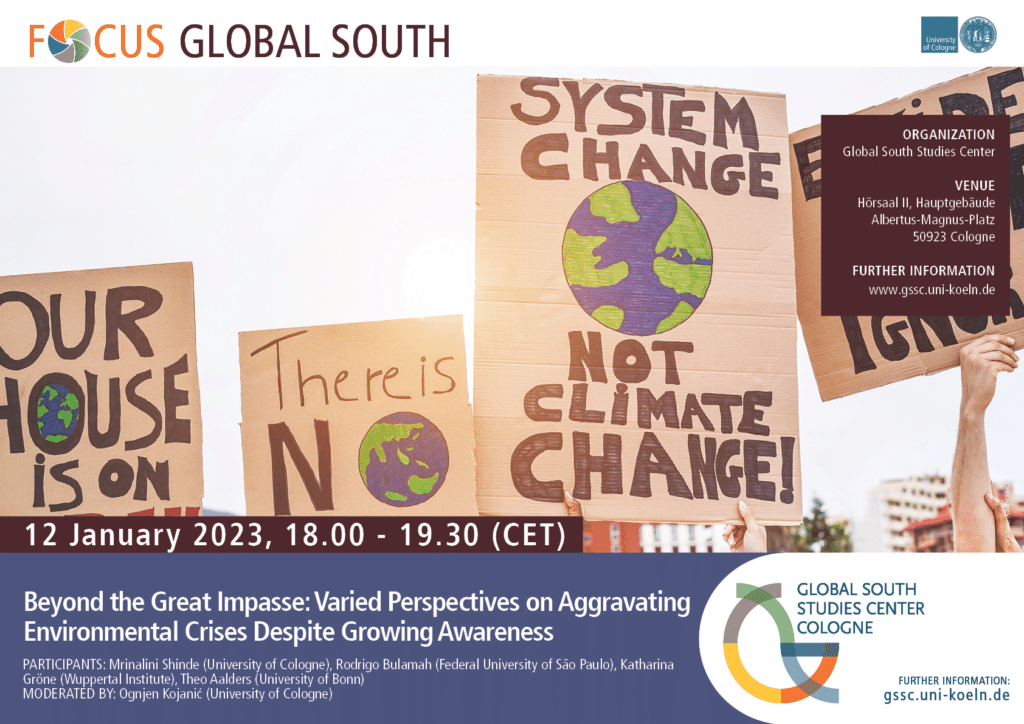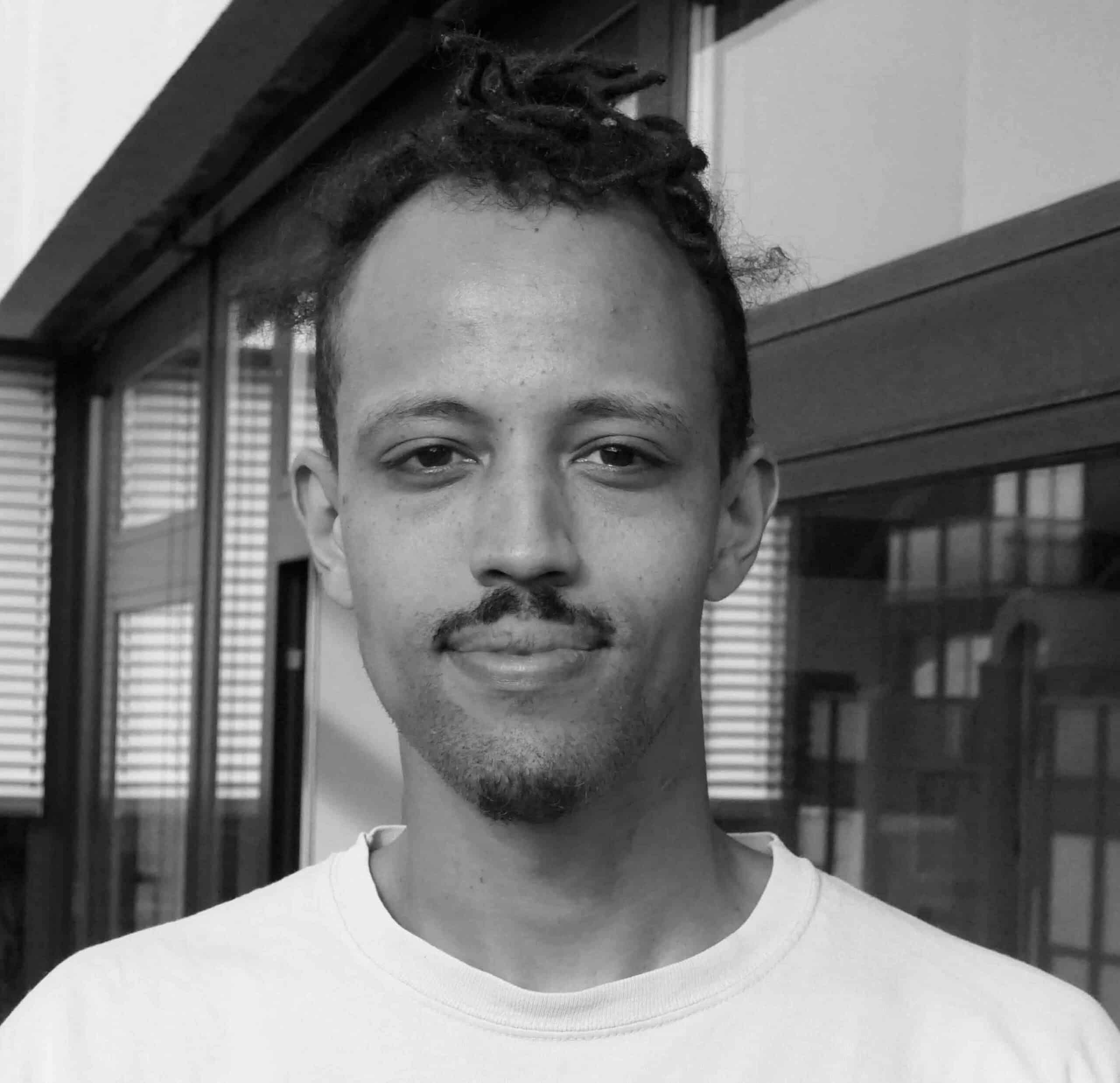At the height of the conflict around the village of Lützerath, this GSSC Focus event tackled the dilemma that global ecological crises aggravate despite a generally growing awareness that fundamental change is required and, notably, despite the political commitment and economic means to address these existential problems. The engaged debate between a group of concerned young and upcoming scholars from various disciplines and cultural backgrounds was soon opened up to an interested audience at the University of Cologne. It explored the reasons for this dilemma as well as potential ways out, the role of the Global South and the relationship between scholarship and activism. While the perspectives varied from fiery-revolutionary class politics to moderate consumer-oriented positions, there was a consensus that the problems are huge and too complex for easy, one-sided answers.
The ecological crisis in its different forms – from climate change and biodiversity loss, to soil degradation, pollution and disease – keeps accelerating. Parallel to that, there is an equally accelerating awareness and recognition of the gravity of the problem and the attendant need for solutions. Alternative models are currently being discussed from a great variety of perspectives, be it in economic, sociological, ethnographic, or literary scholarship. Despite all of that, various ecological indicators point to the environmental situation deteriorating unabatedly. We might call this the Great Impasse, and it is perhaps the central defining, and tragic, signature of our time.
In this panel discussion, young upcoming scholars from various fields and diverse cultural backgrounds, as well as an interested audience, collaboratively explore and debate questions such as:
- How is it possible that crisis tendencies are worsening despite growing awareness and activism?
- How are ways out of this Great Impasse conceivable?
- What are the particular contributions of experiences in the Global South to explaining and solving this dilemma?
- How should, in light of this dilemma, the relationship between scholarship and activism be conceived? Can we still afford to be “value-neutral”, is that possible at all? Or is it exactly through value neutrality that scholars can have political impact?
Our panel discussants are young expert scholars providing varied perspectives on the nexus of inequality and degradation from diverse cultural, disciplinary and empirical backgrounds:
Mrinalini Shinde is an environmental lawyer and researcher managing the Environmental Law Certificate and affiliated with the INGENIoS (Indo-German Network Interaction of Scientists) projects at the Environmental Law Center of the University of Cologne, University of Cologne.
Rodrigo Bulamah is a social anthropologist and postdoctoral fellow at the Social Sciences Graduate Program at the Federal University of São Paulo (Unifesp) and is currently a short-term fellow at the Global South Studies Center.
Theo Aalders is a Postdoctoral fellow at Bonn University, Department of Geography and part of the Collaborative Research Center “Future Rural Africa”.
Katharina Gröne is a cultural anthropologist and researcher at Wuppertal Institute and the “Competence Center Fair Trade” at the Global South Studies Center in Cologne.
Moderator:
Ognjen Kojanić is a cultural anthropologist and Humboldt Postdoctoral Research Fellow at the Department of Social & Cultural Anthropology of the University of Cologne.
https://gssc.uni-koeln.de/en/veranstaltungen/fokus-globaler-sueden/f-23-01-12-great-impasse



